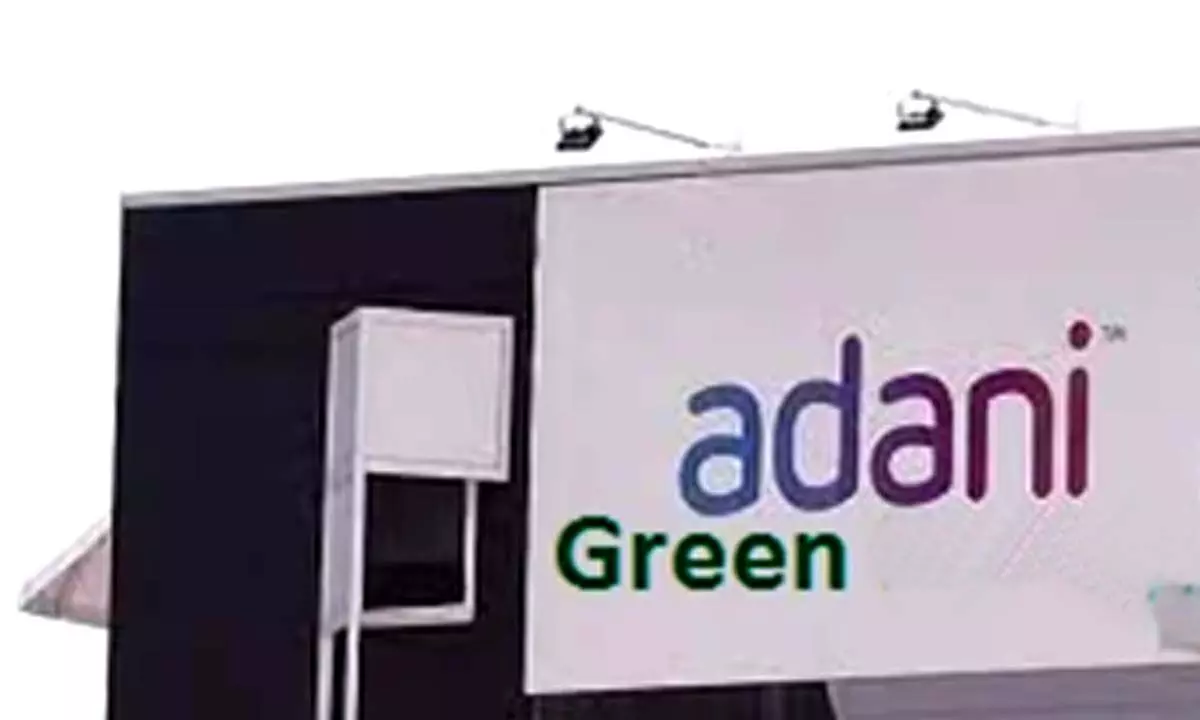Live
- ‘Thug Life’ makes noise in Vizag
- ‘Jatheeyam’ song lyrical video from ‘Bakasura Restaurant’ gets released
- DIY Natural Face Packs for Skin Firmness and a Youthful Glow
- DK Shivakumar Orders Removal of Structures Blocking Rainwater Flow
- Centre launches four AI Missions, including, National UBI and Chatbot AI digital technologies for the disabled
- Had Indian Navy been fully unleashed, Pakistan would have been split into four: Rajnath Singh
- Singapore Open: Satwik-Chirag decimate World No.1 Goh-Izzuddin to reach semis
- Gauhati HC seeks Assam govt's response on whereabouts of detained brothers declared 'foreigners'
- Vijay Deverakonda Reacts to Gaddar Film Awards Honor
- AP DGP and TTD EO reviews on Tirumala security

Mumbai: Adani Energy Solutions (AESL) feels that the competitive intensity for the Tariff Based Competitive Bidding (TBCB) based projects -- worth Rs...
Mumbai: Adani Energy Solutions (AESL) feels that the competitive intensity for the Tariff Based Competitive Bidding (TBCB) based projects -- worth Rs 1.1 lakh crore in pipeline -- has ebbed significantly.
Post a relatively lean last fiscal, most players currently have sufficient projects in hand and are not desperate to bag them at any cost, which is healthy for the sector.
“Expectation is, competition will not be very intense, as every player currently has work. Moreover, the upcoming projects are big sized (i.e. beyond the scope of some players) and hence we don’t expect much pressure on IRR for the future projects in the pipeline,” Kandarp Patel, CEO, Adani Energy Solutions, told investors post announcing the company’s Oct-Dec quarter results Monday.
AESL, country’s largest private sector power transmission company with a network of 20,422 cKM (circuit kilometers) of network, currently has eight transmission projects worth Rs 17,000 crore under commission phase, even as it looks to win more in the coming quarters.
Of the Rs 1.1 lakh crore worth of transmission projects expected to be put for bid over the next 6-7 months, Rs 80,000 crore has already been notified, for which the bidding process will get completed by Apil-May.
On Monday, the company reported 19 per cent YoY growth in its quarterly revenue to Rs 3,515 crore. Comparable PAT (ex-one time), rose 1 per cent to Rs 281 crore, while consolidated operational EBITDA rose by 10 per cent to Rs 1,454 Cr.
During the quarter, it added 302 cKM of network by operationalizing two projects, and won one. In its smart meter business, the company said it has an order book of 2.1 crore smart meters across various states, requiring a capex of Rs 17-18,000 crore.
“As per regulations, we have to commission the meters in 27 months, but our objective is to do so in under 24 months. Here, we don’t need to wait for the full roll out to begin earning as revenue accretion starts even with partial network rollout. This is largely a self-funded business,” Patel told analysts.
Smart meters enable two-way communication between the discom and individual electricity meters and comes with several advantages over the analog ones.
The discoms can manage their cash flows much better as the meters are pre-paid and hence there is no default risk. These meters also allow more accurate billing based on actual consumption.
As Smart Meters enable real time data collection, the discoms can plan their power purchase better and offer time-of-day tariffs. India plans to replace all its 25 crore electricity meters to smart meters over the next couple of years.
Of this, it is yet to bid out 13-14 crore meters, representing massive opportunity in the space. AESL had earlier indicated that it is targeting a 25 per cent market share in the overall smart meter business. It is taking an integrated approach towards the entire business value chain to retain complete control over the rollout as well as end-user experience.
Software and analytics related to smart meters will be provided through JV Adani Esyasoft Smart Solutions. AESL has signed up with Airtel to deploy ‘Airtel IoT Hub’ for smart meter tracking and monitoring with analytics, diagnostic capabilities, and real-time insights and services.
Similarly, sister firms AdaniConneX and Adani Digital Labs will provide data hosting and digital consumer interface respectively. Through the group’s CSR arm, the company is training an army of technicians who would help quick smart meter roll out & will become employable for the entire industry.
In its distribution business where AESL serves more than 12 million consumers in metropolitan Mumbai and the industrial hub of Mundra SEZ, Patel said the company has applied for second license for Mundra, outside of the SEZ region (where it already holds the license), Navi Mumbai, and Jewar (UP), and is awaiting regulatory approvals to launch its service.
“We plan to set up our own distribution infrastructure in each of these regions,” he said.
The company has annual capex plans of Rs 6,000 crore towards its transmission and distribution business.
On its credit rating, the management said it is engaged with the raters to restore the company’s rating as has already been done by S&P (restored to Stable).

© 2025 Hyderabad Media House Limited/The Hans India. All rights reserved. Powered by hocalwire.com






